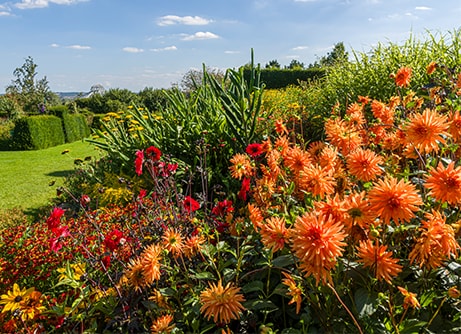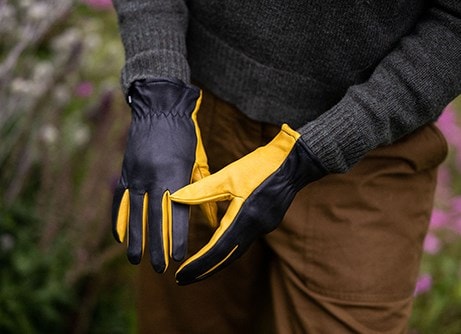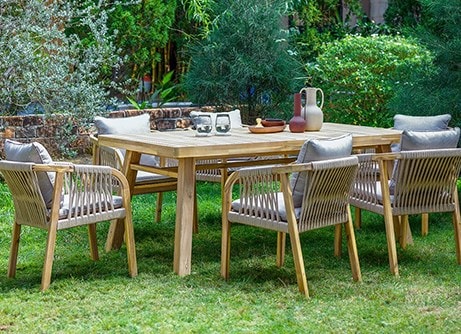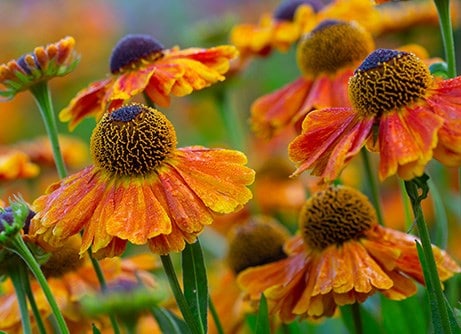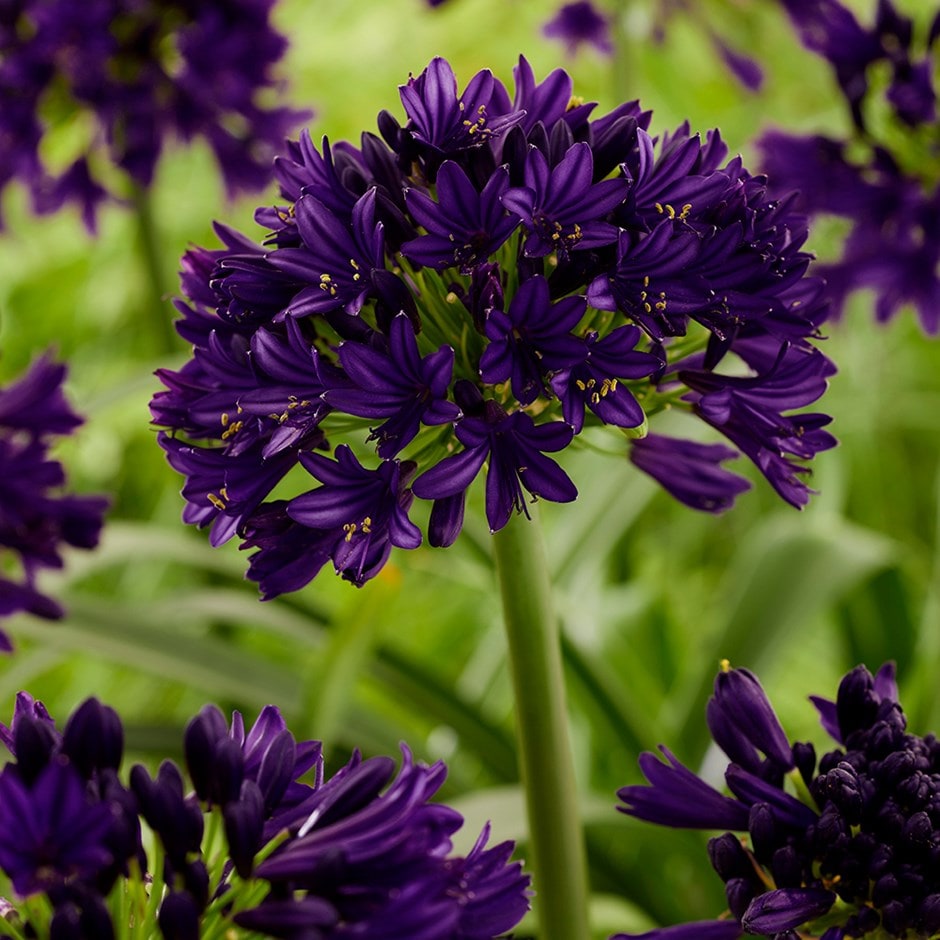
Stunning deep-purple, almost black tubular flowers forming a globe above stout green stems, ‘Black Jack’ is a wonderful perennial suited to bold plantings within borders or as a specimen in a container.
Bred by South African plant breeders De Wet, these eye-catching African lilies are hardier than most and offer a longer flowering performance from mid-summer onwards.
Bred by South African plant breeders De Wet, these eye-catching African lilies are hardier than most and offer a longer flowering performance from mid-summer onwards.
How to care for Agapanthus BlackJack ('Dwaghyb02') (PBR):
Depending on the location of planting in the UK, these agapanthus can be semi-evergreen and hold onto their leaves in milder winters, though will typically lose them in colder regions or spells of weather. However, wrapping in a double layer of horticultural fleece and mulching around the base can safeguard the roots.
Keep well-watered during the growing season, applying a balanced liquid fertiliser each month from spring until the plant flowers. Towards the end of September ease back on the watering and feeding of plants in containers to allow the foliage to toughen up.
Grow Agapanthus plants in rich fertile, well drained soil, in a sunny position. When growing in patio containers, use a soil based compost such as John Innes No.3.
Keep well-watered during the growing season, applying a balanced liquid fertiliser each month from spring until the plant flowers. Towards the end of September ease back on the watering and feeding of plants in containers to allow the foliage to toughen up.
Grow Agapanthus plants in rich fertile, well drained soil, in a sunny position. When growing in patio containers, use a soil based compost such as John Innes No.3.
Flowering period:
- Jan
- Feb
- Mar
- Apr
- May
- Jun
- Jul
- Aug
- Sep
- Oct
- Nov
- Dec
Eventual height:
1m
Eventual spread:
0.4m
Position:
Full sun
Rate of growth:
Slow growing
Soil:
Moderately fertile, moist, well-drained soil
Hardiness:
Borderline hardy (will need protection in winter in colder areas)
-
This perennial dies back to below ground level each year in autumn, then fresh new growth appears again in spring.
-
Humans/Pets: Harmful if eaten
Product options

9cm pot
£16.99
available to order from autumn
Unavailable

3 × 9cm pots
£42.99
£14.33 each
available to order from autumn
Unavailable

2 litre pot
£42.99
available to order from autumn
Unavailable

3 × 2 litre pots
£99.99
£33.33 each
available to order from autumn
Unavailable
1
Delivery options (pick your preferred option at checkout)
Standard Delivery£5.99

